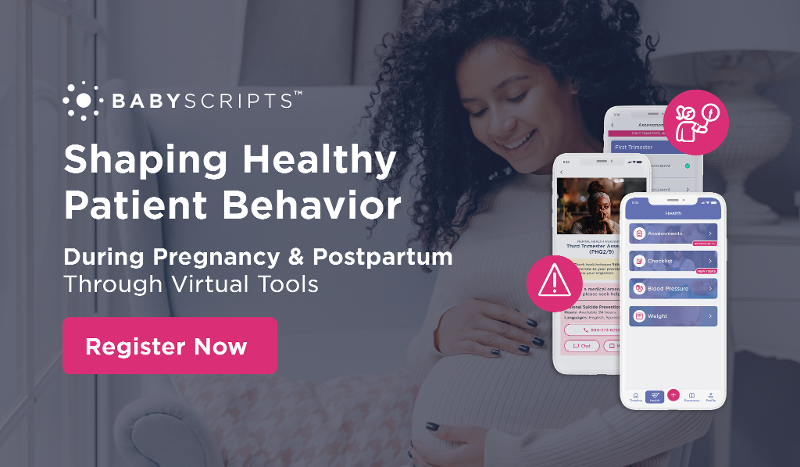Newly released data from Maternal Mortality Review Committees in 36 states show that 80% of pregnancy-related deaths are preventable, a massive jump from the previous statistic of 60%.
According to the communication from the CDC, the data also revealed that “among pregnancy-related deaths with information on timing, about 22% of deaths occurred during pregnancy, 25% occurred on the day of delivery or within a week after, and 53% occurred between 7 days to 1 year after pregnancy.”
The leading underlying causes of pregnancy-related death include:
- Mental health conditions (including deaths to suicide and overdose/poisoning related to substance use disorder) (23%)
- Excessive bleeding (hemorrhage) (14%)
- Cardiac and coronary conditions (13%)
- Infection (9%)
- Thrombotic embolism (a type of blood clot) (9%)
- Cardiomyopathy (a disease of the heart muscle) (9%)
- Hypertensive disorders of pregnancy (7%) (1)
The data collected by MMRCs is encouraging proof of increased and improved reporting processes across the U.S., a positive step in the country’s mission to lower maternal mortality rates. It also represents an immense opportunity for innovators, and will certainly inform provider and payer decisions as they weigh strategies for improving outcomes for pregnant mothers.
The high proportion of deaths in the postpartum period is consistent with previous data, and highlights an issue that has been a challenge for a long time — post-childbirth, women are less likely to engage with the health system than they are during the prenatal period.
This is caused by myriad factors, among them an overemphasis on education and care through pregnancy and delivery to the neglect of the postpartum period; another, the very practical challenge of a new mother getting herself to the doctor’s office when she is overwhelmed by the duties of taking care of an infant and other circumstantial stressors.
Babyscripts has been shown to keep women engaged with their care in this difficult period, improving adherence to postpartum visit attendance and compliance to ACOG guidelines for BP monitoring in the weeks following delivery. With remote patient monitoring for blood pressure and educational content up through one year postpartum, new mothers maintain a connection to their provider, and are empowered to pay attention to their own health in the midst of taking care of their infant.
If mothers were previously enrolled on Babyscripts during the prenatal period, they are even more likely to engage with their care in the postpartum period. Empowering women to track and recognize concerning symptoms at a time when they have a lot of oversight from their provider — and are most motivated to pursue a healthy lifestyle — can establish good habits that carry over into the postpartum period and beyond.
The findings from the MMRCs identify two immediate opportunities for digital health to make an impact on maternal mortality rates: mental health and blood pressure-related complications, which contribute to more than 40% of maternal deaths.
Maintaining a certain BP has been proven to directly affect the risk of hypertension, a direct cause of maternal death and frequently a precursor to cardiovascular conditions that can lead to death. Babyscripts’ blood pressure solution enables women to tightly manage and monitor their blood pressure from home, with data communicated directly back to their provider to facilitate interventions, such as delivery or a medication regimen. Additionally, the educational resources delivered through the Babyscripts app supports women pursuing lifestyle habits that can decrease risk, such as balanced eating and maintenance of a certain BMI.
Hypertension has become an increasingly problematic issue for pregnant and postpartum mothers; and while typically more prevalent in geriatric pregnancies, new research shows that after taking age into account, women having babies now are about twice as likely to develop hypertension in pregnancy than women from the baby boom generation, which is further tied to a generational decline in heart health (2). These findings contribute to the opinion held by many industry leaders that remote monitoring of blood pressure should be the standard of care for pregnant and postpartum mothers.
Solutions for maternal mental health (MMH) complications are not as far along the adoption curve as blood pressure solutions, but the improved reporting on and exposure of the issues have accelerated development and adoption in recent months.
Screenings for MMH issues through the prenatal and postpartum period, and even pre-conception, offer a preventative pathway to address MMH. Screening for social determinants of health in these period is an equally vital avenue for addressing these stats, as women who experience poverty, intimate partner violence, food or housing insecurity, et al. are much more likely to experience MMH complications, issues which — if they don’t lead to death — can resurface in the mother years after childbirth, and have been linked to negative outcomes in the child’s health as well.
To address this opportunity, Babyscripts offers technology that can deliver screenings directly to the patient at their convenience and communicate data back to the provider and health plan, facilitating better care management and support. Additionally, if a maternity patient is already using technology to monitor other parts of her care, such as blood pressure or weight management, there is a much higher likelihood of compliance.
Learn more about Babyscripts new and updated tools to support holistic maternal care and encourage healthy behaviors at our upcoming webinar; including
- Tools to identify and address mental health concerns
- Patient rewards programs sponsored through the health plan
- Topical educational campaigns created with trusted content partners
Join Margaret Fu, Lead UX/UI Designer; Bonnie Tung, Senior Project Manager, Maternal Health Monitoring; and other members of the Babyscripts team on October 26th, at 12 pm ET for “Shaping Healthy Patient Behavior During Pregnancy and Postpartum Through Virtual Tools.”

Endnotes
1. Pregnancy-Related Deaths: Data from Maternal Mortality Review Committees in 36 US States, 2017–2019 | CDC
2. Natalie A. Cameron et al, Association of Birth Year of Pregnant Individuals With Trends in Hypertensive Disorders of Pregnancy in the United States, 1995-2019, JAMA Network Open (2022).

Submit a comment